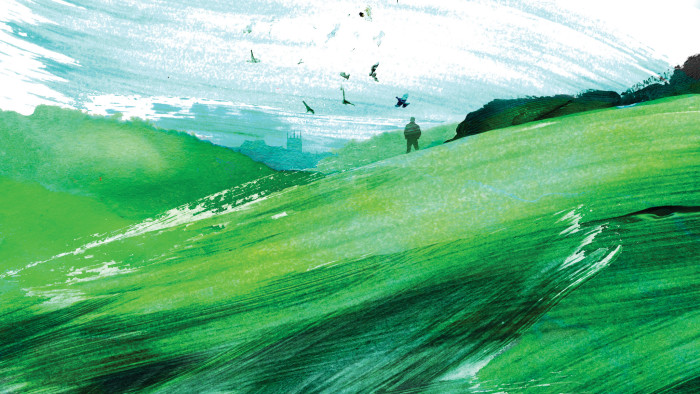The Thing About December, by Donal Ryan

Simply sign up to the Life & Arts myFT Digest -- delivered directly to your inbox.
The Thing About December, by Donal Ryan, Doubleday Ireland, RRP£12.99, 208 pages
During the Celtic Tiger years, Irish novelists were regularly hauled up by critics for failing to tackle contemporary Ireland, and were accused of being preoccupied with the past. Eminent writers such as Joseph O’Connor, Colm Tóibín and Sebastian Barry continued to depict an Ireland that was poor and oppressed at a time when the nation was revelling in an orgy of consumption. It seemed out of kilter.
These writers were in part satisfying readers’ appetite for stories that focused on an impoverished past, portraying the Irish as victims of adversity – famine, emigration, poverty, colonisation and Church oppression. But it also seemed as if no one wanted to look in the mirror during Ireland’s boom years. The reflection was an exhilarating, yet terrifying, one.
When the country was forced to cede control of its finances in 2010, the change was seismic; Ireland is still coming to terms with what happened. And just as it took a few years for novels about 9/11 to be published, novels depicting Ireland’s recent fall have only begun to appear. Anne Enright’s 2011 The Forgotten Waltz was one of the first, shortly followed by Belinda McKeon’s Solace, Deirdre Madden’s Time Present and Time Past and Justin Quinn’s Mount Merrion. The novel that really captured the Irish public’s imagination, however, was Donal Ryan’s debut, The Spinning Heart .
Set in a fictional small town in rural Ireland, the novel is narrated by 21 inhabitants each affected in different ways by the property crash. It displayed an outstanding talent for voice and was longlisted for the 2013 Man Booker Prize, also winning the Guardian First Book Award.
The Thing About December, Ryan’s second novel to be published, was in fact written before The Spinning Heart and reads as a kind of prequel. It is set in the same town over the course of a year, but this time at the height of the boom. Instead of a host of voices, it is narrated by just one character, and is all the more powerful for it. Johnsey Cunliffe is something of a man-child, a gentle soul, describing himself as a “gom”, “thick”, “a bit of a God-help-us”. His chronically low self-esteem makes social interaction excruciating and he is constantly maltreated by those around him. With his disarming mix of naivety and wisdom, he is in a way a Forrest Gump for this side of the Atlantic. But whereas Gump lives the American dream, Johnsey gets landed with the Irish nightmare – the fallout from the property boom.
Ryan’s novel is in essence a modern retelling of the age-old Irish drama of fighting for land. Johnsey’s parents die, leaving him the family farm. When the farm is rezoned as development land, Johnsey becomes a paper millionaire. Opportunists quickly move in. His neighbour attempts to purchase the acreage at agricultural value, having heard about the rezoning before Johnsey. A local businessman urges Johnsey to sell it to him in the name of progress, but not sure what to do, Johnsey fails to make a deal. When a rumour is spread that he’s holding out for €20m, the locals gang up, condemning him as greedy. The village unites in resentment towards Johnsey, who retreats into siege mode.
Johnsey’s voice is an endearing one. He speaks in a seductive rural idiom peppered with words from the Irish language and enriched with natural imagery (“May was Daddy’s mother’s name . . . She could make the stones laugh, too”). His interior monologue recalls those of Barry’s characters, who are also immersed in the natural world and lacking in guile. The price Johnsey pays for his naivety is off the scale. But then, the price the Irish have paid for their naivety is off the scale too.
This is very much a novel about the Celtic Tiger. It reflects the current national narrative, which is that – yet again – the Irish are victims. Yet that reflection is in a sense incomplete. In The Spinning Heart, the most potentially interesting voice of all – that of the rogue builder who ripped everyone off – was absent; in The Thing About December, events are filtered through the childlike consciousness of Johnsey, and therefore we’re denied much insight into the bad guys, that is to say, pretty much everyone else in the town.
Since John McGahern died in 2006, no Irish novelist has devoted themselves to recording the contemporary Irish rural experience in a realist form. McGahern’s shoes are hard to fill, but Ryan is clearly committed to his subject and possesses the insight and empathy to illuminate the heart of the matter.
Claire Kilroy is author of ‘The Devil I Know’ (Faber)
Comments